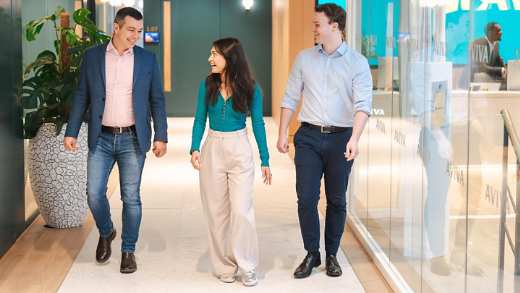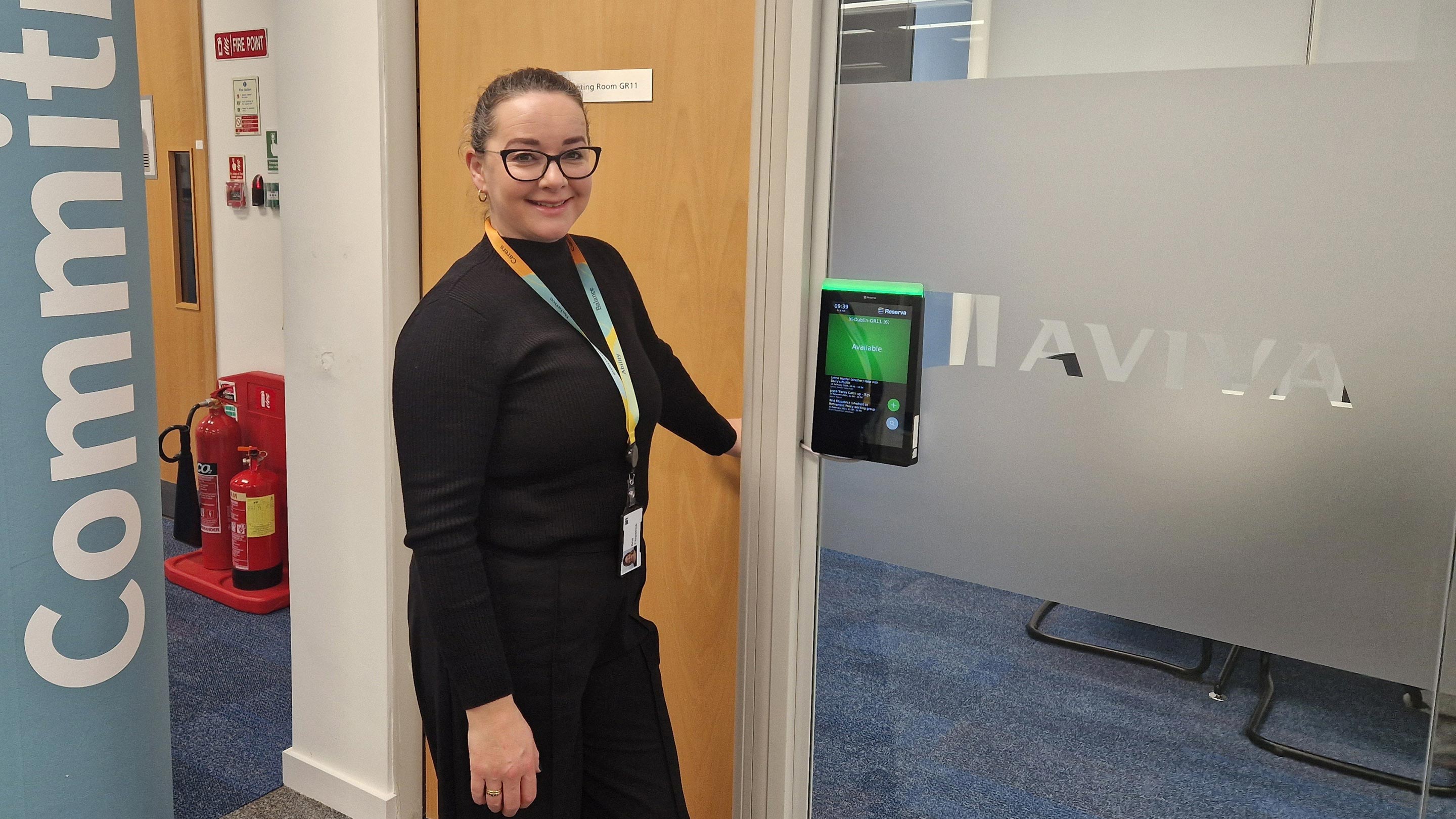Whether you need quiet time, or time to fuse with other bright minds, it’s all about finding a balance.
And where, when, and how you work, will depend on the type of role you do.
Smart working
Smart working is our name for hybrid working.
This means working at both the office and at home.
When you're a Smart Worker, our expectation is that you’ll split your time roughly 50/50 between home and the office.
We also want everyone to be in the office every week.


Being in the office at least three days of the week, gives me the opportunity to focus my day with any face-to-face meetings, training, team and collaboration days.
The days when I work from home then give me the time and space to focus on doing the work itself, catching up on emails and for virtual meetings. And if I so happen to have any deliveries and I'm around at home for these - this is a massive plus.
Flexible working
Aviva is for everyone and so is working flexibly.
Flexible working isn’t just for people with kids or for colleagues approaching retirement. We all have unique needs, and we'll always strive to make our working patterns as inclusive as possible based on the role that you do.
It goes without saying that we need to keep our customers' needs at the forefront of our decision making. But we'll always try to accommodate your requests, focusing on the advantages of having a productive and diverse workforce who can balance everything going on in their lives.
It's easy to think it's all about part-time working, but across Aviva there are lots of other options, including:
- Flexible full time
- Job sharing
- Term time working


I often wonder how I’d be able to work if I couldn’t work flexibly. My children are young and need me at both ends of the day. So, it allows me to be the mum and the colleague I want to be.
I’ve reduced my working week by one day. A busy life left no time for ‘me’ which impacted negatively on everything around me. It wasn't an easy decision, but my leader and team have been so supportive. It’s made a massive difference to my mental wellbeing.
